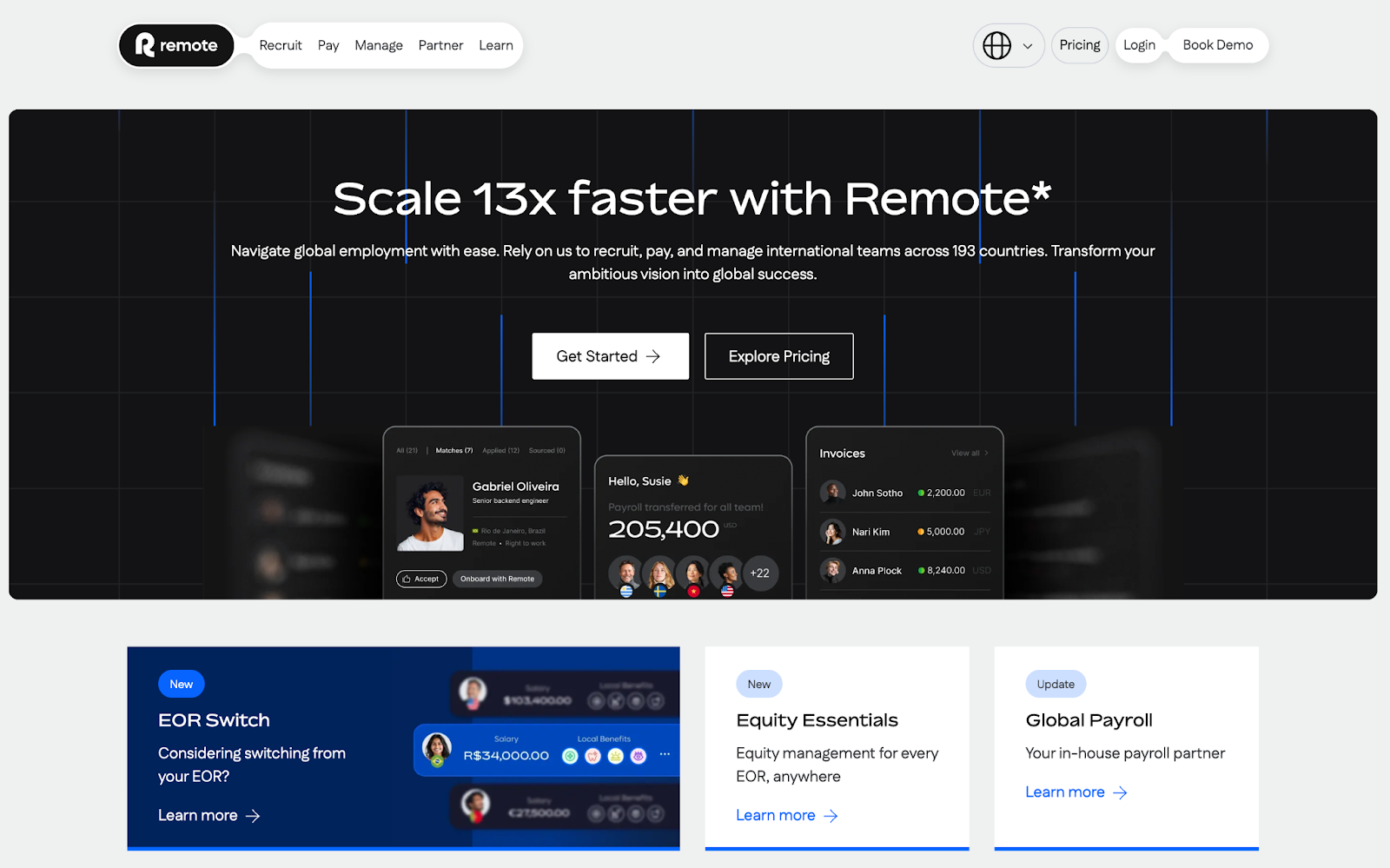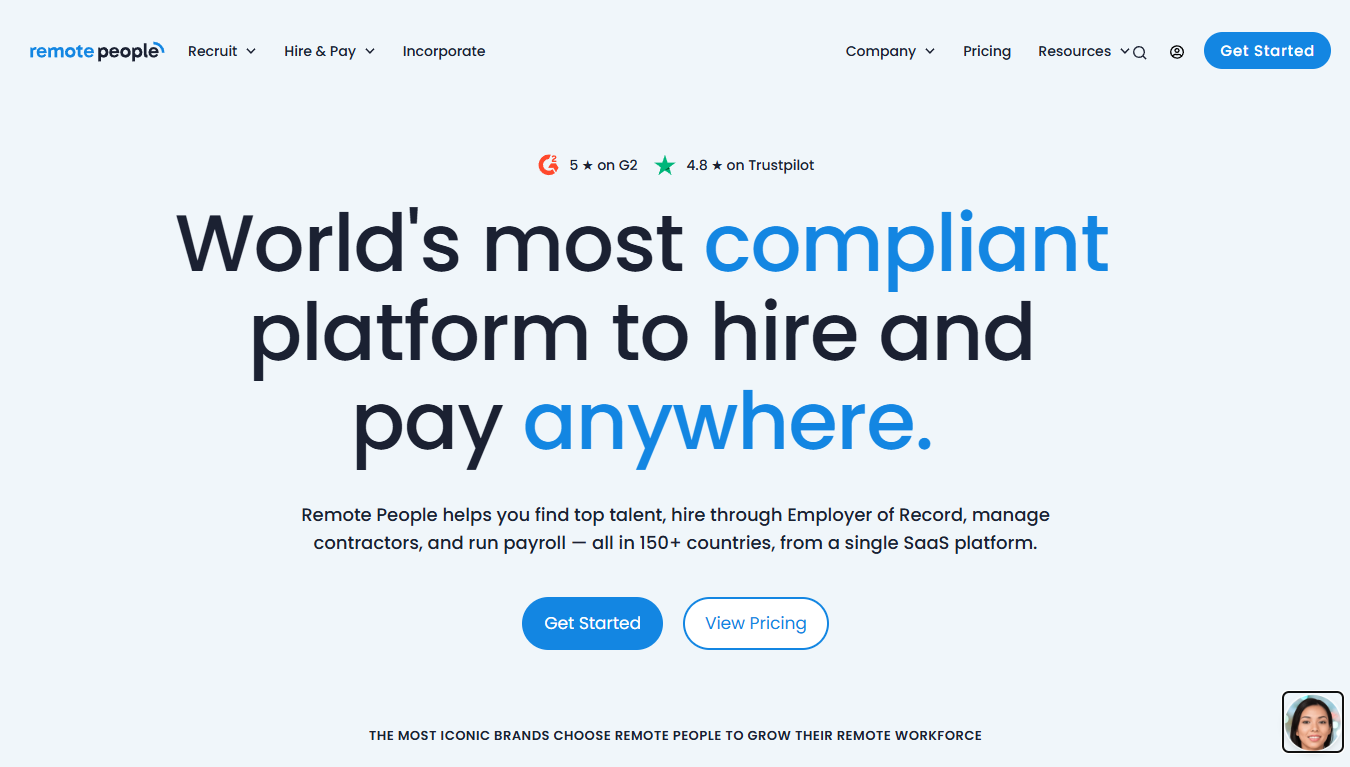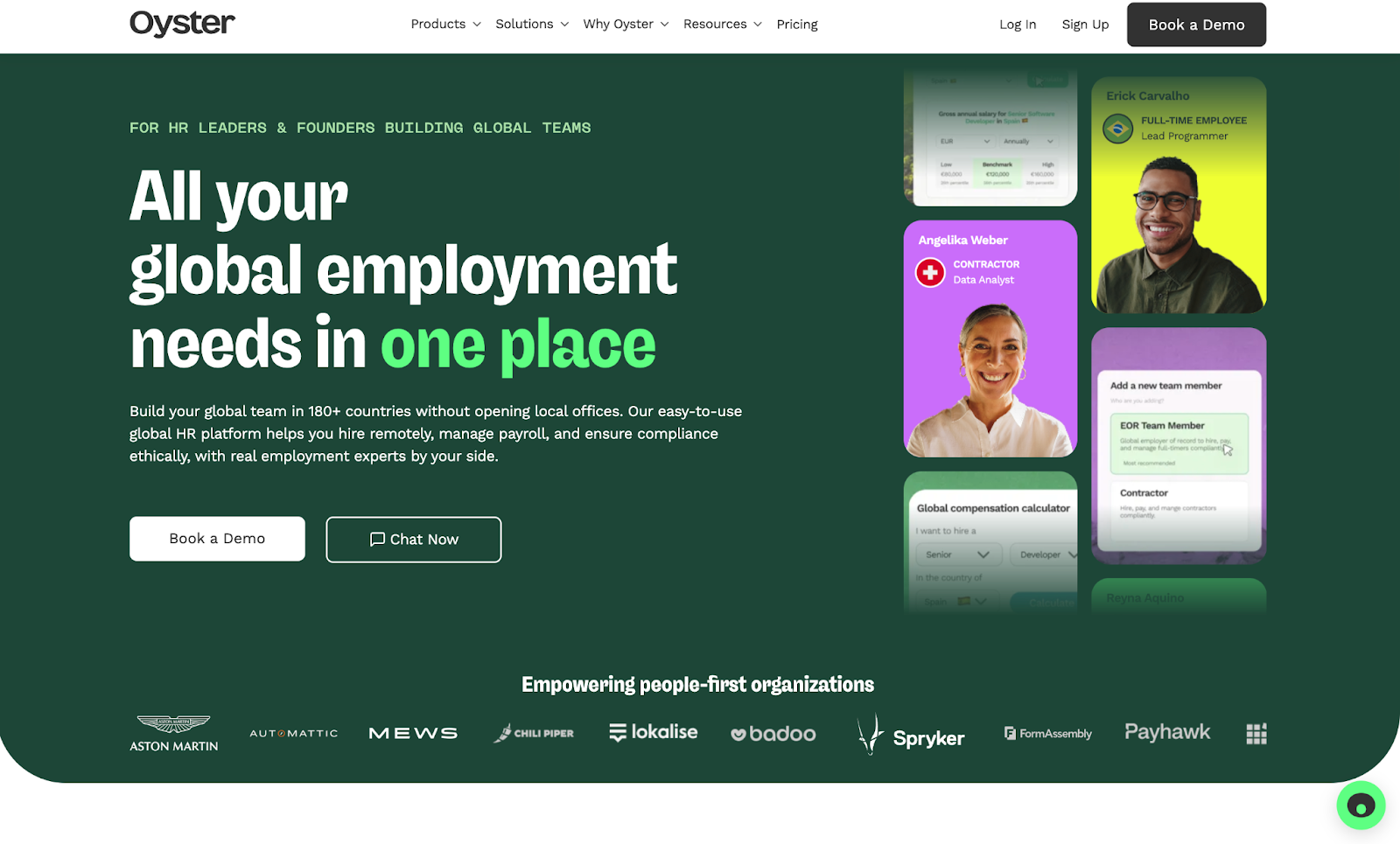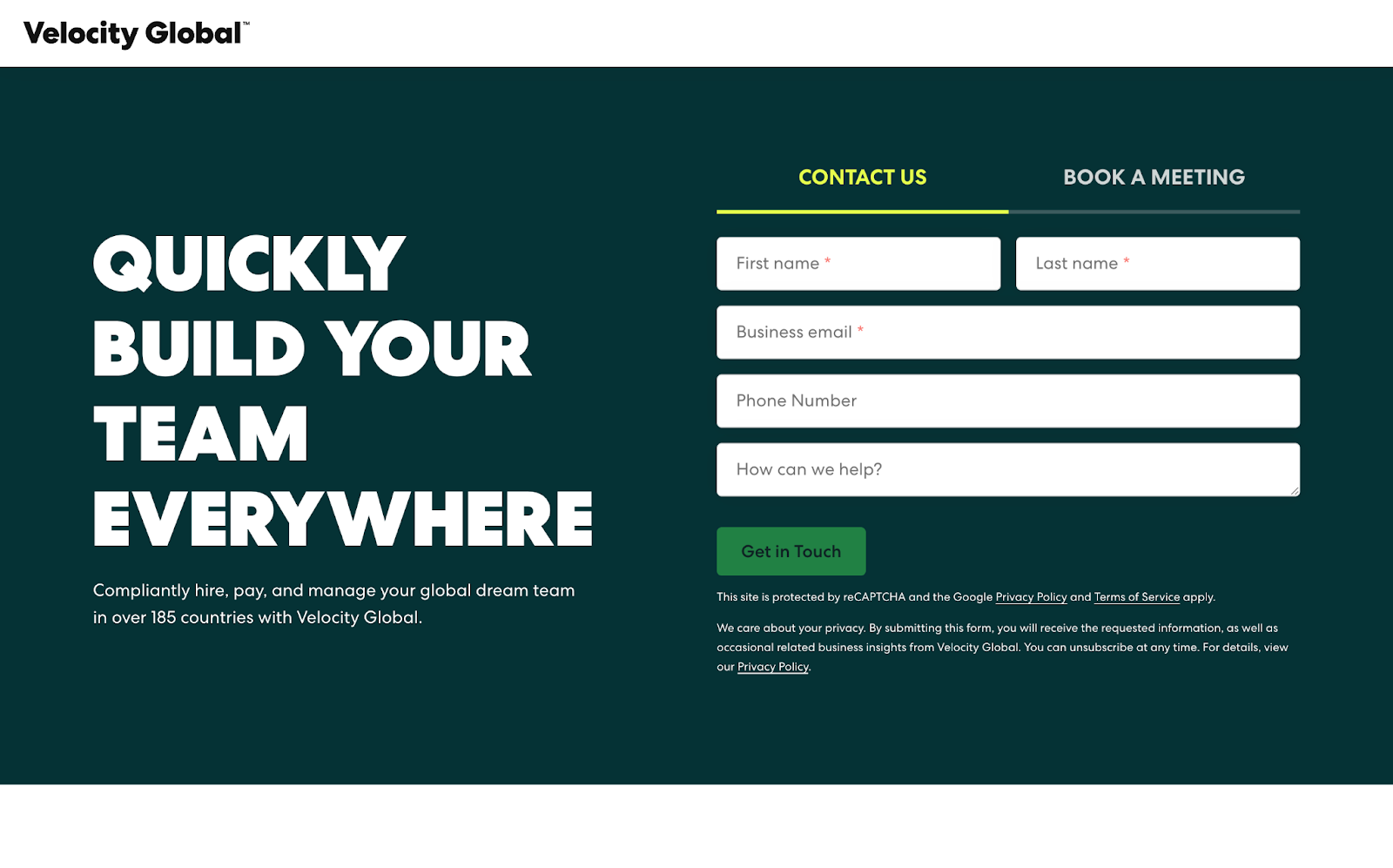With the EdTech industry expected to be worth over $800 billion by 2033, it’s no surprise that new education-based startups are entering the market all the time — that’s a pretty big pie to try and nab a slice of.
But while 9 in 10 startups sadly fail, a lucky few will grow and grow. And when that happens? They typically need to expand. More success invariably means the need for more people — but recruiting the right talent isn’t easy, or cheap.
More and more, small-to-medium-enterprises are turning to remote hiring, and this approach is strategically and operationally logical for education startups.
Why?
For starters, it’s often a more flexible and cost-efficient way to recruit — which is ideal for early-stage companies who need new hires up and running quickly — but there’s also access to global talent this way, enabling growing firms to hire bilingual educators or curriculum developers fluent in local pedagogy.
As a startup, hiring a remote employee from overseas can be complex — there’s local compliance and tax hoops to jump through, for example — but it needn’t be, especially if you’re prepared to use an Employer of Record (EOR), a tool which effectively acts as the de facto hiring company of your international talent.
In this guide, we pore over the five best EOR platforms for education startups in the U.S.
LOCAL NEWS: 100 best places to work and live in Arizona for 2025
1. Remote

Remote has quickly become the go-to platform for education startups looking to expand globally without losing sleep over compliance or payroll. From a functionality standpoint, it offers everything a scaling EdTech company could need: international hiring, contractor management, localized benefits, payroll, and IP protection — all rolled into a clean, intuitive platform.
Where Remote really shines is in its global infrastructure. Unlike some competitors that rely on third-party partners in certain countries, Remote owns its local entities. This may sound like a technical detail, but it gives U.S.-based education businesses a crucial edge — tighter compliance, faster onboarding, and fewer surprise costs.
It’s also ideal for EdTechs who prioritize ethical employment. Remote places a big emphasis on fair pay and local law compliance, which is particularly important if your brand narrative includes equitable access to education.
Key benefits for education-focused businesses:
- Owns legal entities in over 100 countries
- Built-in compliance, benefits, and payroll
- Strong IP and data protection — essential for curriculum-based startups
- Transparent pricing with no hidden fees
Limitations? There aren’t many — though some might find it a bit pricier than lightweight contractor-only solutions. But if your startup is planning long-term and wants to grow into a globally distributed team, Remote is the safest bet with the fewest compromises.
2. Deel
If you need to hire a developer in Germany today and a STEM tutor in Brazil tomorrow, Deel just might be the platform to do it with. It’s known for lightning-fast onboarding (sometimes in as little as 24 hours), and a slick UX that makes everything from creating contracts to paying international educators remarkably simple.
Deel supports hiring in over 100 countries and has particularly strong functionality for contractor management — making it a good fit for EdTech platforms that rely on a mix of permanent hires and freelance curriculum creators.
There’s also a suite of built-in HR tools: time-off tracking, document storage, and integrations with major accounting and HR platforms — helpful when you’re juggling a small team with big ambitions.
Deel in a nutshell:
- Extremely fast onboarding and hiring
- Huge global reach (over 100 countries supported)
- Contractor and full-time employee management
- Modular pricing — pay only for what you need
One limitation is that Deel still relies on third-party entities in some countries. While this won’t be a dealbreaker for many, it does mean slightly less control and potential delays in edge-case compliance scenarios — which may be a factor to consider if you’re conducting a Deel vs Remote comparison.
That said, for many U.S.-based EdTech startups, Deel’s speed and flexibility make it a compelling choice — especially in fast-moving growth phases.
3. Remote People

Remote People is an emerging EOR platform that’s been gaining traction among U.S.-based education startups looking to expand efficiently into global markets. It stands out with its strong emphasis on simplicity, offering a straightforward, no-fuss approach to international hiring and compliance.
For early-stage EdTechs, this can be a game-changer — Remote People provides a lightweight yet robust platform that covers essential EOR needs without overwhelming founders or HR teams with unnecessary complexity. From onboarding international educators to managing cross-border payroll, the platform ensures compliance, tax management, and benefits delivery are handled smoothly.
Why education startups might consider Remote People:
- Focus on streamlined international hiring
- Competitive pricing starting from $199 per employee — ideal for startups watching their burn rate
- Solid compliance and legal support across key global markets
- One of the few EORs that also recruits staff
- User-friendly interface that works well for small HR teams
A possible limitation is that Remote People, being a newer entrant compared to giants like Remote or Deel, may not yet offer the same level of deep-dive analytics or extensive integrations. But for EdTech startups that prioritize ease of use and budget-conscious scaling, Remote People is an increasingly compelling option.
4. Oyster

Oyster sets itself apart by focusing not just on international hiring but on building strong global teams. It’s a standout option for education startups that want to create a collaborative culture across borders — rather than simply tick compliance boxes.
One preeminent feature is its “Total Rewards” model, which helps employers offer competitive, localized benefits packages to international employees. For education startups hiring subject matter experts or instructors in competitive markets, this can be the difference between securing top talent and missing out.
Oyster is also a Certified B Corporation, which aligns well with mission-driven EdTechs who prioritize impact and sustainability alongside growth.
Oyster’s highlights:
- Excellent tools for building equitable, people-first teams
- Great for companies with values around diversity and inclusion
- Localized benefits packages built-in
- Transparent and ethical hiring support
Downsides? Oyster’s pricing can be a bit steeper if you’re hiring in smaller, less-supported regions. Also, it’s geared more towards full-time hires than freelance or gig roles — so if your education business leans heavily on contractors, Oyster may not be the most flexible fit.
Still, for startups that want to scale global teams thoughtfully, Oyster offers unmatched support in doing it right.
5. Velocity Global

If your education startup is targeting Spanish-speaking learners or expanding into European markets, Velocity Global might be exactly the strategic partner you need.
Their compliance infrastructure is particularly strong in regions like LATAM and Europe, which can be a massive help for EdTechs rolling out local language courses or needing to hire bilingual customer support staff.
Velocity Global offers a wide range of services — from EOR to immigration support and corporate restructuring — making it an especially good choice for startups ready to shift from scrappy to scalable.
What’s to like:
- Strong EOR coverage in Europe and LATAM
- Local hiring expertise and guidance
- Additional support services beyond basic employment
- Strong compliance guarantees
Potential drawback? The platform itself isn’t as modern or intuitive as Remote or Deel — some users report clunky onboarding flows or limited dashboard customization. But if your hiring needs are focused in their core regions, Velocity Global brings deep expertise that can outweigh UI polish.
Whether you’re a curriculum-focused startup looking to hire a multilingual content lead in Spain, or an EdTech platform building out your dev team in Eastern Europe, Employer of Record platforms can help you scale smarter without drowning in compliance-related complexities.
A platform such as Remote is ideal for startups looking for a long-term, reliable global hiring partner, while options like Deel bring speed and flexibility for companies looking to move fast. Ultimately, the right EOR will depend on where you’re hiring, what roles you’re filling, and crucially — how quickly you’re growing.




